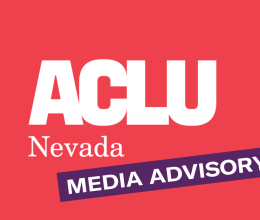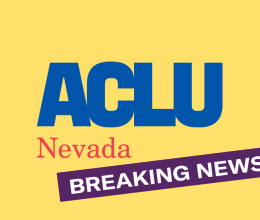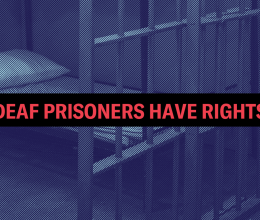There is a perception that schools are safer with police officers on campus, but the call for police-free schools has gained momentum in recent years as issues with racial profiling, police brutality, and surveillance have become more apparent. With a police presence comes an increase in police-student interactions, which can lead to traumatizing confrontations.
As a student you have rights when it comes to dealing with law enforcement and school officers.
IF YOU ARE STOPPED OR QUESTIONED BY POLICE ON CAMPUS
- In Nevada, you must give your name if asked to identify yourself.
- Ask if you are free to go. If yes, calmly walk away.
- Upon request, show police your student ID or state ID.
- Know that you can assert your right to remain silent and can answer any question by saying, "I want to remain silent." You also have the right not to write or sign a statement. If you choose to speak or write about what happened, your words can be used against you.
- You can also ask to have a lawyer, a parent, or another adult present before you are questioned or make any statements.
- Let an adult you trust know what happened. If you're hurt, see a doctor and take pictures of your injuries.
- Afterwards, write down everything you remember (like the officer's badge number and name, who else was there, and what happened).
IF AN OFFICER IS ATTEMPTING TO SEARCH YOU OR YOUR BELONGINGS
- You can say, "I do not consent to this search." This may not stop the search, but this is the best way to protect your rights.
- An officer cannot search you based on a feeling, a rumor, the color of your skin, or the clothes you're wearing.
- If you or your belongings are searched, it must be related to the crime that you're suspected of committing. For example, an officer cannot search your pockets if they think you stole a computer from school because you can't hide a computer in your pocket.
- Police and school employees are NEVER allowed to strip search you.
IF YOU ARE ARRESTED
- A police officer can only arrest you if they know facts (not a rumor or guess) indicating that you probably committed a crime.
- Do not resist arrest, even if you believe the arrest is unjust.
- Ask for a lawyer and assert your right to remain silent
- Your constitutional rights must be read to you.
Reminders:
- You do not have to answer any questions besides giving your name.
- Anything you say can be used against you in a court of law.
- You have the right to a lawyer if you’ve been arrested.
- You have the right to record law enforcement.
If you have had your rights violated by school police, contact us.






